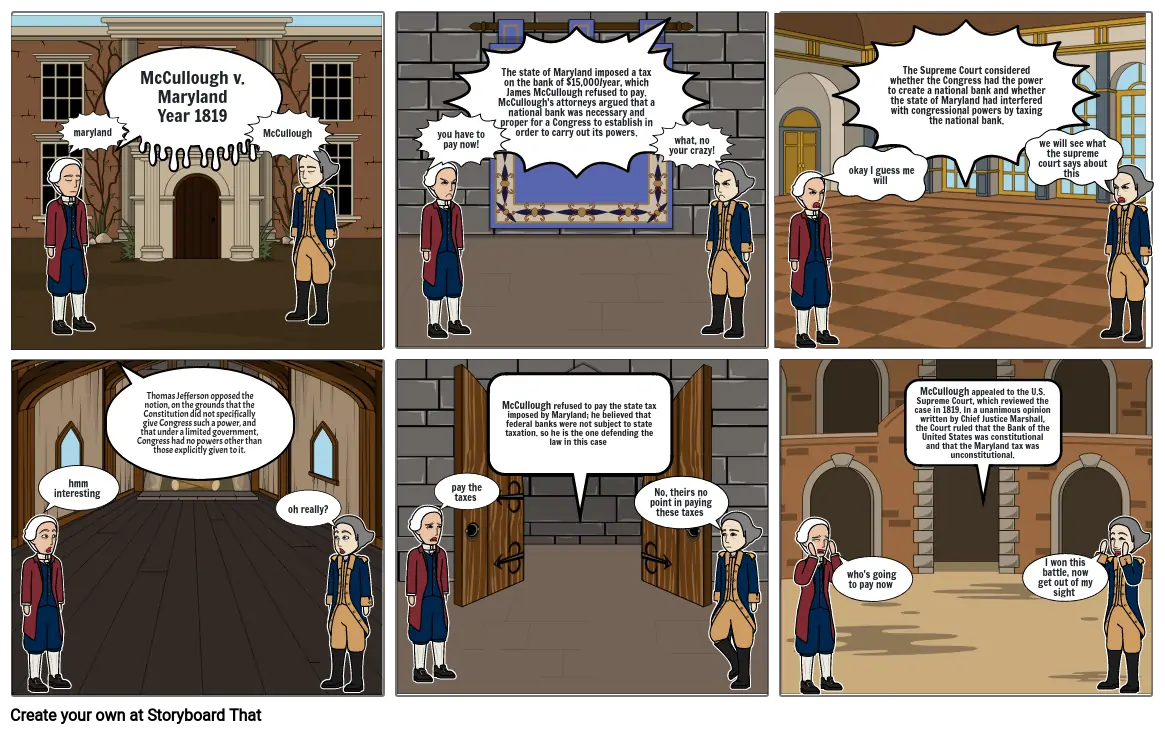McCulloch v. Maryland

Storyboard Text
- maryland
- McCullough v. MarylandYear 1819
- McCullough
- you have to pay now!
- The state of Maryland imposed a taxon the bank of $15,000/year, which James McCullough refused to pay.McCullough's attorneys argued that a national bank was necessary and proper for a Congress to establish in order to carry out its powers.
- what, no your crazy!
- okay I guess me will
- The Supreme Court considered whether the Congress had the power to create a national bank and whether the state of Maryland had interfered with congressional powers by taxing the national bank.
- we will see what the supreme court says about this
- hmm interesting
- Thomas Jefferson opposed the notion, on the grounds that the Constitution did not specifically give Congress such a power, and that under a limited government, Congress had no powers other than those explicitly given to it.
- oh really?
- pay the taxes
- McCullough refused to pay the state tax imposed by Maryland; he believed that federal banks were not subject to state taxation. so he is the one defending the law in this case
- No, theirs no point in paying these taxes
- who's going to pay now
- McCullough appealed to the U.S. Supreme Court, which reviewed the case in 1819. In a unanimous opinion written by Chief Justice Marshall, the Court ruled that the Bank of the United States was constitutional and that the Maryland tax was unconstitutional.
- I won this battle, now get out of my sight
Peste 30 de milioane de Storyboard-uri create

